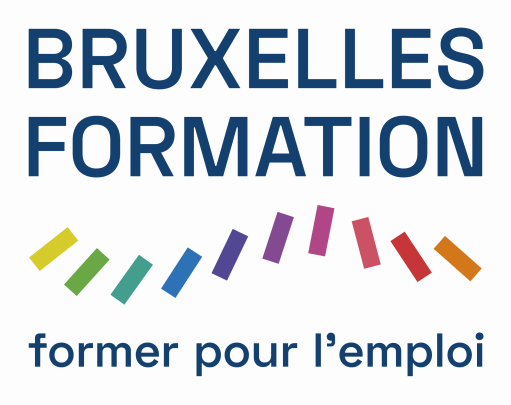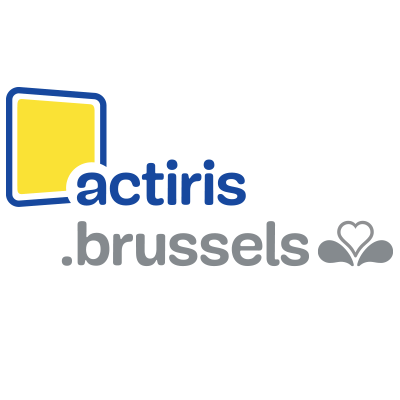Is your business looking to recruit one or more members of staff on a tight budget? Thanks to government employment schemes, it is possible to recruit quality candidates while receiving substantial support, enabling you to reduce the company’s payroll costs and train the new recruits to meet its specific needs.
Support by sector
Hospitality
Flexi-jobs
Flexi jobs are applicable in the following sectors in particular: hospitality, department stores, food retailing, hairdressers and beauty care, bakeries and patisseries, temporary employment, hotel industry, cinema, sport, etc. The full list of sectors covered is available on the FPS Employment website.
As an employer, you only pay 28% of the employer contribution and no personal NSSO contribution. Employees receive pay that is not subject to personal income tax, which means that their gross pay is their net pay. This applies as long as the employee earns no more than €12,000 in a year (this ceiling does not apply to flexi pensioners).
Flexi jobs apply to people who already have a job (minimum 4/5th time) or who are retired.
Hospitality grant
Employers in the hospitality sector benefit from a reduction in NSSO contributions of €500 (employee aged +26) or €800 (employee aged -26) per employee and per quarter.
This reduction applies to a maximum of five employees (permanent and full-time) per quarter and per employer. Each quarter, the employer may choose which employees to apply the reduction to.
The reduction applies indefinitely.
Grant for social secretariat costs
Employers in the hospitality sector benefit from a financial contribution for affiliation with a social secretariat.
The contribution is €10 per full FTE per quarter.
Socio-cultural and sports
Article 17
Employees hired for a maximum of 25 days per year by an employer active in the socio-cultural and sports sector benefit from advantageous social security contributions.
In fact, the employer does not pay social security contributions for employees falling within the scope of Article 17.
Retail trade, events, real estate, food industry, etc.
Flexi jobs
Flexi jobs are applicable in the following sectors in particular: hospitality, department stores, food retailing, hairdressers and beauty care, bakeries and patisseries, temporary employment, hotel industry, cinema, sport, etc. The full list of sectors covered is available on the FPS Employment website.
As an employer, you only pay 28% of the employer contribution and no personal NSSO contribution. Employees receive pay that is not subject to personal income tax, which means that their gross pay is their net pay. This applies as long as the employee earns no more than €12,000 in a year (this ceiling does not apply to flexi pensioners).
Flexi jobs apply to people who already have a job (minimum 4/5th time) or who are retired.
Support based on the (future) employee's profile
Students
Student jobs
Students benefit from a special rate of social security contributions (5.42% of gross pay paid by the employer and 2.71% paid by the student). They can work under this special status for up to 600 hours per year (in the Brussels-Capital Region).
Students are paid by the hour rather than by the day, offering greater flexibility to both the employer and the student.
Interns
Work-study training
Work-study training enables young people aged under 25 to receive on-the-job training while attending theoretical courses during the rest of the week.
The young person receives a fixed monthly allowance from the company (between €352 and €1,137, depending on the college and the year of training).
As an employer, you will need to have your company recognised as a training company and appoint a tutor responsible for the intern's training. To this end, you can benefit from Actiris' annual tutor bonus of €1,750 per tutor for any internship of at least six months.
Stage First
Stage First enables you to take on a low-skilled job seeker aged under 30. In this way, Stage First gives job seekers the opportunity to gain initial experience and learn or perfect their skills in a given field.
For the business, it is an opportunity to train a young person for three to six months to meet its specific needs, for a gross amount of €500 per month (subject to 11.11% payroll tax).
In-company individual professional training
In-company individual professional training enables companies to train their future recruits themselves. A training plan must be approved by Bruxelles Formation before the employment contract is signed.
During the training period, the employer pays no pay or social security contributions, but only a training allowance directly to the intern.
In-company individual professional training lasts between four weeks and six months. At the end of the training period, the company is required to hire the intern for a period at least equivalent to that of their internship.
Professional immersion internships
An internship formalised by a professional immersion contract enables a job seeker to discover an industry sector.
The training plan must be approved by Bruxelles Formation.
The allowance paid by the employer to the trainee varies between €849 and €1035, depending on the intern's age.
The internship must last between one and six months.
People who already have a job
Flexi jobs
Flexi jobs are applicable in the following sectors in particular: hospitality, department stores, food retailing, hairdressers and beauty care, bakeries and patisseries, temporary employment, hotel industry, cinema, sport, etc. The full list of sectors covered is available on the FPS Employment website.
As an employer, you only pay 28% of the employer contribution and no personal NSSO contribution. Employees receive pay that is not subject to personal income tax, which means that their gross pay is their net pay. This applies as long as the employee earns no more than €12,000 in a year (this ceiling does not apply to flexi pensioners).
Flexi jobs apply to people who already have a job (minimum 4/5th time) or who are retired.
Public Centre for Social Welfare (PCSW) beneficiaries
Integration jobs (former Article 60)
- An "Integration Job" (formerly known as " Article 60") enables a PCSW beneficiary to find a job.
- In practice, an employment contract is signed between the PCSW beneficiary and the PCSW (which is the legal employer). The beneficiary is placed in a company.
- The company only contributes financially to a portion of the employee's pay.
- To apply as a company, you need to contact one of the PCSWs in the Brussels-Capital Region.
Long-term job seekers
activa.brussels grant
The activa.brussels grant is aimed at job seekers under the age of 57 who have been registered with Actiris for at least 312 days over the last 18 months. The job seeker must possess the "activa.brussels" certificate.
The employer may deduct an allowance from the employee's net pay. The pay therefore remains the same for the employee: one part is paid by the employer, the other is paid to the employee by their payment organisation (union or Auxiliary Fund for Payment of Unemployment Benefits (CAPAC)).
The allowance amounts to a total of €15,900 over 30 months (for full-time work).
The employer must provide at least half-time hours under a permanent contract or a fixed-term contract of more than six months.
In addition to the allowance provided in the context of the activa.brussels grant, the employer can benefit from a training incentive grant to offset the training costs for the new employee.
Under 30s
Work-study training
Work-study training enables young people aged under 25 to receive on-the-job training while attending theoretical courses during the rest of the week.
The young person receives a fixed monthly allowance from the company (between €352 and €1,137, depending on the college and the year of training).
As an employer, you will need to have your company recognised as a training company and appoint a tutor responsible for the intern's training. To this end, you can benefit from Actiris' annual tutor bonus of €1,750 per tutor for any internship of at least six months.
Stage First
Stage First enables you to take on a low-skilled job seeker aged under 30. In this way, Stage First gives job seekers the opportunity to gain initial experience and learn or perfect their skills in a given field.
For the business, it is an opportunity to train a young person for three to six months to meet its specific needs, for a gross amount of €500 per month (subject to 11.11% payroll tax).
activa.brussels Plus grant
This grant applies to job seekers under the age of 30 who have not completed upper secondary education. The job seeker must possess the "activa.brussels Plus" certificate.
The employer may deduct an allowance from the employee's net pay. The pay therefore remains the same for the employee: one part is paid by the employer, the other is paid to the employee by their payment organisation.
The allowance amounts to a total of €23,400 over 36 months (for full-time work).
The employer must provide at least half-time hours under a permanent contract or a fixed-term contract of more than six months.
In addition to the allowance provided in the context of the activa.brussels Plus grant, the employer can benefit from a training incentive grant to offset the training costs for the new employee
Over 57 years of age
activa.brussels Plus grant
This grant applies to hiring of job seekers aged over 57. The job seeker must possess the "activa.brussels Plus" certificate.
The employer may deduct an allowance from the employee's net pay. The pay therefore remains the same for the employee: one part is paid by the employer, the other is paid to the employee by their payment organisation (union or Auxiliary Fund for Payment of Unemployment Benefits (CAPAC)).
The allowance amounts to a total of €23,400 over 36 months (for full-time work).
The employer must provide at least half-time hours under a permanent contract or a fixed-term contract of more than six months.
In addition to the allowance provided in the context of the activa.brussels Plus grant, the employer can benefit from a training incentive grant to offset the training costs for the new employee.
"Older employees" NSSO reduction
From the age of 61 (and up to the age of 65), employees are entitled to a reduction of €1,000 per quarter on employer contributions (NSSO). The reduction applies to employees whose income is capped at €8,000 per quarter (2024 income).
There are no special formalities, as the reduction is normally applied automatically when the NSSO declaration is made.
Flexi jobs for pensioners
Flexi jobs are applicable in the following sectors in particular: hospitality, department stores, food retailing, hairdressers and beauty care, bakeries and patisseries, temporary employment, hotel industry, cinema, sport, etc. The full list of sectors covered is available on the FPS Employment website.
As an employer, you only pay 28% of the employer contribution and no personal NSSO contribution. Employees receive pay that is not subject to personal income tax, which means that their gross pay is their net pay. This applies as long as the employee earns no more than €12,000 in a year (this ceiling does not apply to flexi pensioners).
Flexi jobs apply to people who already have a job (minimum 4/5th time) or who are retired.
Grant for people with disabilities
This is a grant for employers hiring a job seeker with a disability. The job seeker must possess the "activa.brussels reduced capacity" certificate.
The amount of the grant is €5,000 per employee. This grant is intended to cover the expenses necessary for the employee's inclusion (adaptation of the workstation, disability training, etc.).
The job seeker must be hired under a permanent contract with at least half-time hours, or a fixed-term contract of at least six months.
In addition to the allowance provided in the context of the activa.brussels reduced capacity grant, the employer can benefit from a training incentive grant to offset the training costs for the new employee.
Support based on the employer's profile
Hiring of the first employee(s)
Reduction in employer contributions for the first employee
Any employer can benefit from a total exemption from employer contributions (NSSO) when hiring its first employee. Employers who have not taken on any employees in the 12 months prior to the hiring are also considered "new employers", and can therefore benefit from the exemption.
The exemption only concerns employer contributions. Special employer contributions and the employee's personal contributions of 13.07% remain payable.
As of 1 January 2024, the exemption from employer contributions (NSSO) is limited to a maximum lump sum of €3,100 per quarter. In concrete terms, the employer will only pay employer contributions to the NSSO if the monthly pay exceeds €4,100 (for full-time work).
This benefit applies indefinitely.
Reduction in employer contributions for the second and third employees
Any employer can benefit from a reduction in employer contributions (NSSO) when hiring its second and third employees.
The reduction applies for 13 quarters. The total reduction over the 13 quarters is €13,750 for the second employee and €11,250 for the third employee.
Micro entreprises
Recruitment grant
The grant is intended for micro enterprises already employing at least 1 FTE and wishing to take on an additional employee on a permanent contract.
The amount of the grant ranges from €5,000 to €15,000 for full-time work.
The grant is payable from when the employee starts work and no later than three months after this date.
Employers' alliances
A solution for hiring an employee for one or more companies
This solution is not a grant, but it does help to reduce payroll costs.
In an employers’ alliance, two or more businesses come together to hire one or more employees, who work alternately or simultaneously at each of the businesses in question. This system enables companies that do not have sufficient financial resources to hire one or more employees full time and/or do not need to do so, to share staff.
As the legal employer, the employers’ alliance is responsible for entering into contracts with the employees. The alliance then supplies employees to the member companies. The latter are simply users and are not considered legal employers.
The alliance must be registered as a non-profit and its sole corporate purpose must be to supply employees to its members.
Companies that wish to form an employees’ alliance must first obtain authorisation from the Ministry of Employment.
Flemish-speaking companies (in Brussels)
IBO Training
IBO Training (Individuele beroepsopleiding/Individual Vocational Training) follows the same logic as the in-company individual professional training. The only difference is that it is aimed solely at Flemish-speaking companies (located in Brussels or Flanders) that are looking to recruit.
IBO Training makes it possible to train interns within companies while teaching them Flemish at the same time, through a free course delivered on the company's premises by a VDAB teacher.
The training lasts between four weeks and six months. At the end of the training period, the company is required to hire the intern for a period at least equivalent to that of their internship.
During the training period, the employer pays no pay or social security contributions, but only a "productivity allowance" directly to the intern.
Who can help me ?




